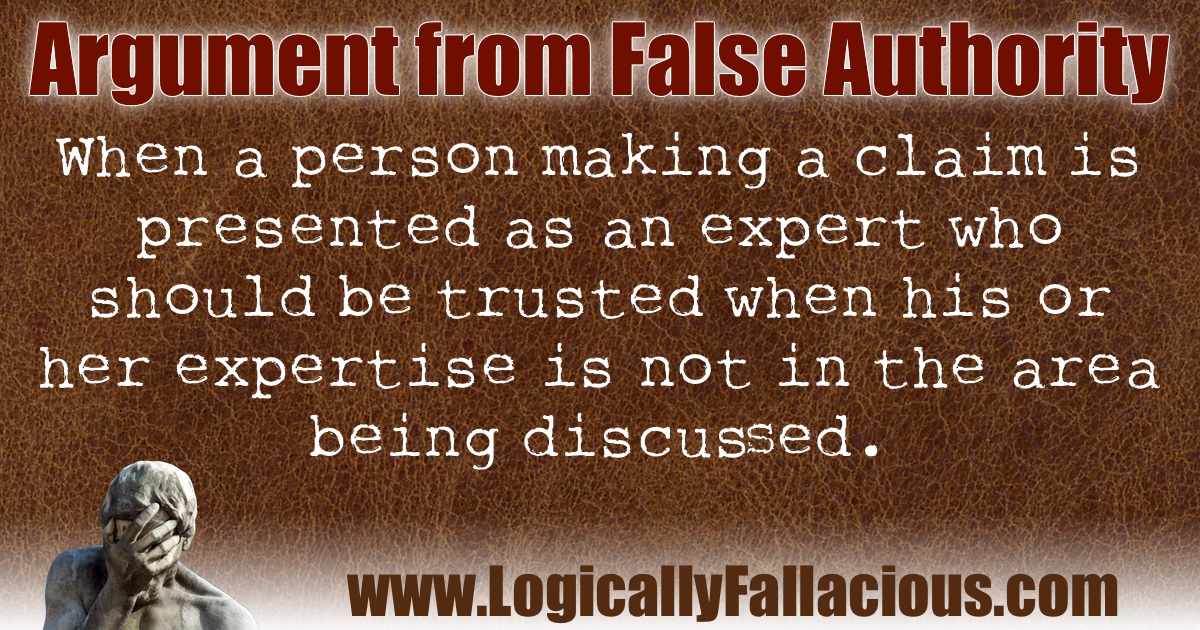Argument from False Authority
Description: When a person making a claim is presented as an expert who should be trusted when his or her expertise is not in the area being discussed.
Logical Form:
Expert A gives her view on issue B.
Expert A's area of expertise has little or nothing to do with issue B.
Expert A's opinion influences how people feel about issue B.
Example #1:
Dr. Dean, TV's hottest new psychologist, says that coffee enemas are the "fountain of youth." Get me that coffee enema!
Explanation: Assuming Dr. Dean is actually a licensed psychologist, that does not qualify him to give advice about non-psychology related issues such as coffee enemas. Extending his expertise from psychology to issues of the colon is fallacious.
Example #2:
My accountant says that within the next 90 days, the president will be impeached! So we should take this claim seriously!
Explanation: Unless the accountant has some inside information to the presidency, her expertise in accounting has little to do with the current administration, political, and constitutional law.
Exception: Don't pigeonhole people into certain areas of expertise. A medical doctor can also be an expert in sewing. A fly-fisherman can also be an expert in law. And a patent clerk can also be an expert in quantum mechanics.
Tip: Become an expert in something.

References:
This a logical fallacy frequently used on the Internet. No academic sources could be found.
Questions about this fallacy? Ask our community!